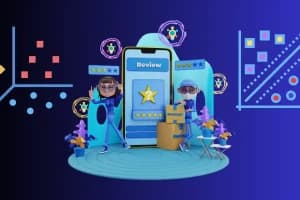AI is changing the way businesses connect with customers. It automates tasks, personalizes messages, and improves marketing efficiency. If you want to stay ahead, implementing AI in your marketing strategy is a must. Let's break it down step by step.
What is AI Marketing Automation?
AI marketing automation uses artificial intelligence to streamline repetitive tasks. It helps businesses analyze customer data, predict behavior, and deliver personalized content. With AI, you can automate email campaigns, social media posts, and even content creation.
Step 1: Define Your Goals
Before jumping in, set clear goals. What do you want to achieve? More leads? Higher conversions? Better engagement? Your goal will determine which AI tools to use.
Step 2: Choose the Right AI Tools
AI marketing tools come in many forms. Here are a few to consider:
-
AI Image Generator - Create eye-catching visuals with an AI image generator. Just enter a prompt, and AI will generate an image that fits your brand.
-
AI Video Generator - Need quick video content? An AI video generator app can turn ideas into professional-quality videos in minutes.
-
Chatbots - Automate customer service with AI-powered chatbots. They answer common questions and guide customers through the sales funnel.
-
Email Marketing AI - AI tools can optimize email subject lines, content, and send times for better open rates.
-
Predictive Analytics - AI can analyze customer behavior and predict future actions, helping you target the right audience.
Step 3: Automate Content Creation
Content is king, but creating it takes time. AI can help.
-
Use AI Image Generator - Instead of spending hours designing, generate AI images in seconds.
-
Leverage AI Video Generator App - Transform text or ideas into engaging videos for ads and social media.
-
AI Copywriting Tools - AI can assist in writing blog posts, social media captions, and product descriptions.
Step 4: Personalize Customer Interactions
Customers expect personalized experiences. AI makes this easy.
-
Segment Your Audience - AI analyzes customer data and groups people with similar interests.
-
Dynamic Content - Show different content to different users based on their behavior.
-
AI-Powered Recommendations - Suggest products or services based on past purchases or browsing history.
Step 5: Automate Social Media Marketing
Social media can be time-consuming. AI tools help you stay consistent.
-
Schedule Posts - AI tools like Buffer or Hootsuite automate post scheduling.
-
Analyze Engagement - AI tracks likes, shares, and comments to optimize your strategy.
-
Generate Hashtags - AI suggests trending hashtags to increase reach.
Step 6: Track and Optimize Performance
AI isn't a "set it and forget it" solution. Keep an eye on your data.
-
Monitor Analytics - AI tools provide insights on what's working and what's not.
-
A/B Testing - Test different versions of emails, ads, and landing pages to see what converts best.
-
Adjust in Real-Time - AI can optimize campaigns instantly based on live data.
Why AI Marketing Automation Matters
AI saves time, reduces costs, and improves marketing performance. It allows businesses to focus on strategy while AI handles the heavy lifting. Whether you're using an AI image generator for visuals or an AI video generator app for content, automation is the future.
Final Thoughts
AI marketing automation isn't just for big companies. Small businesses can use it to compete and grow. Start with a few tools, test what works, and scale as you go. The key is to use AI to enhance your strategy, not replace human creativity.
Are you ready to embrace AI in your marketing? Start now and watch your business grow!







